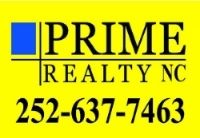Thinking about buying a home in North Carolina? Whether you’re relocating, retiring, or purchasing a second home, chances are you have questions—and lots of them. North Carolina’s unique mix of mountains, coastlines, and growing cities makes it an attractive market, but it also comes with its own rules, processes, and considerations.
Here are some of the most common real estate questions from homebuyers—answered clearly and specifically for the North Carolina market.
1. Do I Need a Real Estate Agent in North Carolina?
Yes—and it’s highly recommended.
A licensed real estate agent represents your interests, helps you navigate negotiations, and ensures the contract follows NC real estate laws. In North Carolina, agents must use state-approved forms and follow legal disclosure practices. A buyer’s agent is typically paid from the seller’s commission, so using one won’t cost you extra.
2. What’s the Due Diligence Period in NC?
North Carolina uses a “due diligence” system instead of contingencies.
-
You pay a non-refundable due diligence fee to the seller for time to inspect the home and secure financing.
-
During this period, you can walk away for any reason, but after it ends, your earnest money may be at risk.
This is a key difference from many other states—so working with an agent familiar with NC law is critical.
3. How Much Are Closing Costs in North Carolina?
Buyers typically pay 2%–5% of the purchase price in closing costs. This includes:
-
Attorney fees (real estate closings in NC must be done by an attorney)
-
Title insurance
-
Loan origination fees
-
Appraisal & inspections
-
Taxes & recording fees
Tip: Some closing costs are negotiable, and sometimes sellers offer credits.
4. Are Property Taxes High in North Carolina?
No—property taxes in NC are relatively low.
The state’s average effective property tax rate is around 0.77%, compared to the national average of 1.1%. That makes it especially attractive to retirees and second-home buyers.
Each county sets its own tax rate, so costs can vary by location.
5. Is North Carolina a Disclosure State?
Yes. Sellers are legally required to provide a Residential Property and Owners' Association Disclosure Statement and Mineral and Oil Rights Disclosure.
However, North Carolina is also a “buyer beware” state. Sellers can answer "No Representation" to many questions, so it's essential that buyers:
-
Hire a licensed home inspector
-
Conduct thorough due diligence
-
Review HOA covenants, if applicable
6. What Should I Know About Flood Zones and Insurance?
Flood zones are a serious consideration, especially in coastal or low-lying areas. Make sure to:
-
Check FEMA flood maps during your due diligence.
-
Understand that flood insurance is not included in standard homeowners policies.
-
Ask your agent or insurance provider for quotes before you finalize the purchase.
7. Can I Buy a Home Remotely?
Yes! North Carolina has become increasingly buyer-friendly for remote purchases, especially for out-of-state buyers:
-
Many agents offer video tours and virtual consultations.
-
Documents can often be signed digitally.
-
Closings can be conducted via mail-away or with limited power of attorney, if needed.
8. What Are the Hottest Markets in North Carolina?
Popular areas for buyers include:
-
Triangle Area (Raleigh-Durham-Chapel Hill) – Job growth, universities, and tech.
-
Charlotte – Urban living with big-city amenities.
-
Asheville – Mountain lifestyle, arts, and cooler climate.
-
Wilmington / New Bern / Morehead City – Coastal charm and retirement-friendly.
Each region has its own price point, weather, and vibe—your agent can help narrow your options.
9. How Competitive Is the Market Right Now?
North Carolina has seen strong demand, especially in popular areas. However:
-
Interest rates and market seasonality can influence competition.
-
In hot markets, expect multiple offers and quick closings.
-
In quieter regions, buyers may have more negotiating power.
Staying flexible and pre-approved can give you a real edge.
10. Can I Buy Land and Build in North Carolina?
Yes! North Carolina has many undeveloped or partially developed lots, especially in rural and coastal areas.
Keep in mind:
-
Zoning laws vary by county
-
You’ll need permitting, septic, and well inspections (if not on public systems)
-
Some communities may have HOA design restrictions
This route gives you more control over your home—but also takes more time and planning.
Final Thoughts
Buying real estate in North Carolina is a great investment—whether you're looking for a forever home, a second property, or a retirement retreat. By understanding the unique legal and financial aspects of the NC market, you’ll be better prepared and more confident in your decisions.
Pro tip: Surround yourself with the right team—an experienced agent, lender, attorney, and inspector—and the process becomes much smoother.
Thinking of buying in North Carolina?
Let’s talk about your goals and help you find the right place to call home. Let us help!
When working with PRIME Realty you will work with expirenced and knowlegable Brokers that are very familiar with New Bern area market! New Bern NC Real Estate









